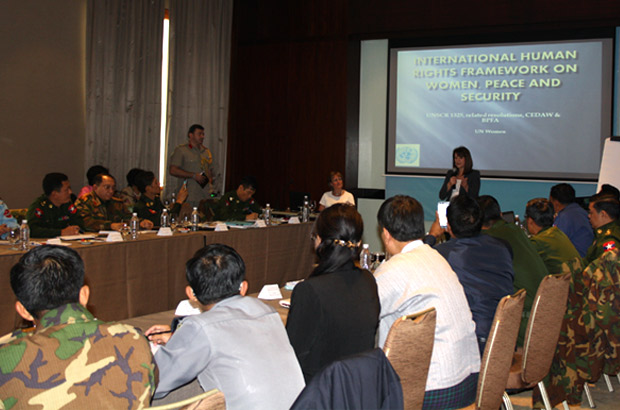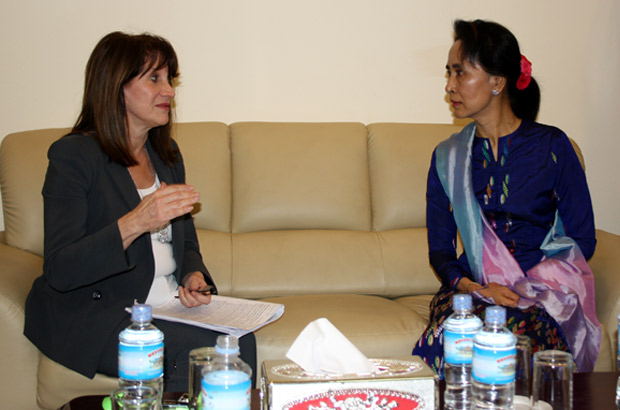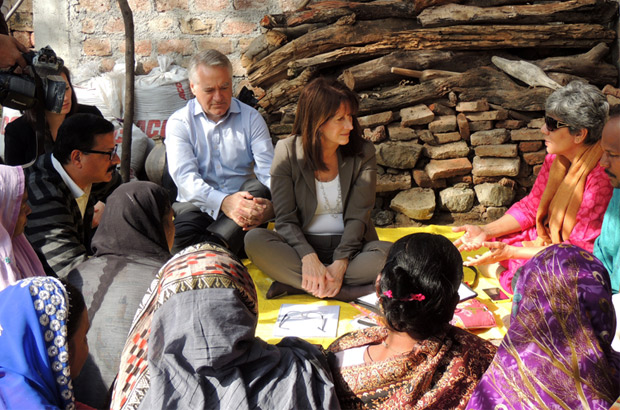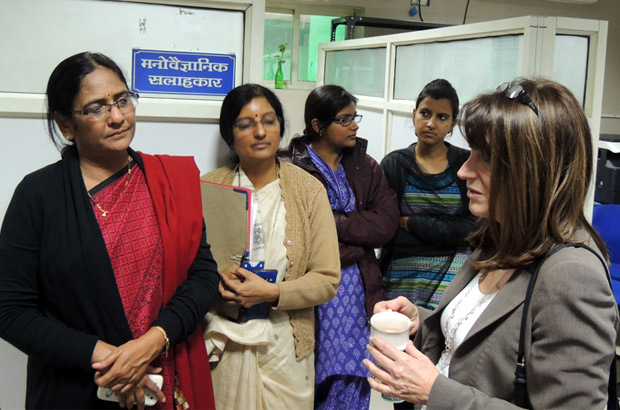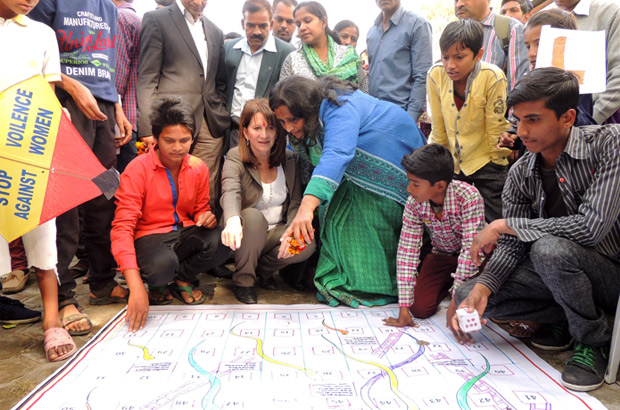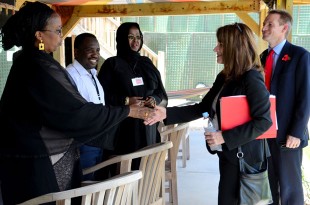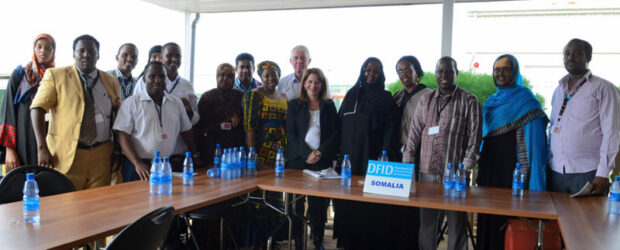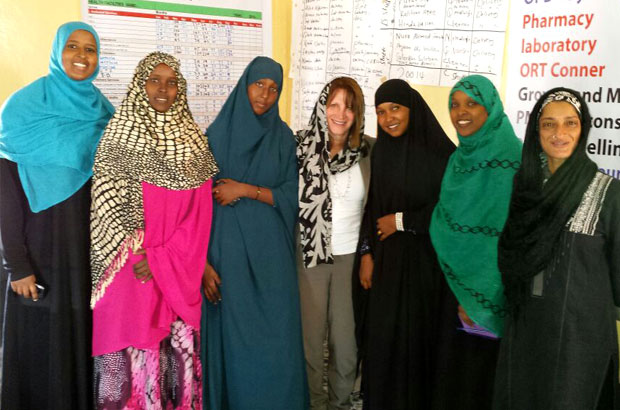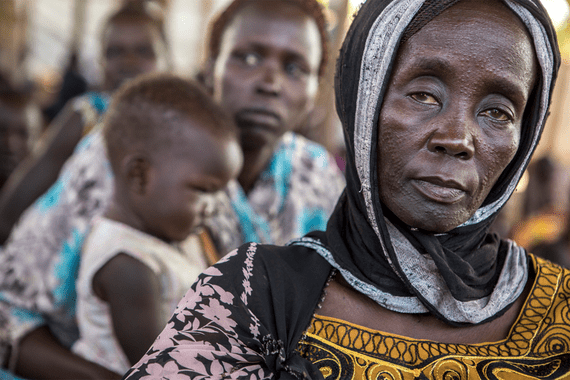Also available here.
My last day in India was spent back in New Delhi and I could write a whole blog just on my first meeting of the day with 10 young people! They’re part of the ‘With.in’ initiative, funded by DFID, which selects 100 passionate young people, mentors them and supports them over the course of 1 year to lead creative projects that challenge discrimination in their communities. Nearly half of these young leaders are women.
One of them, herself the daughter of a sex worker, works with children from red-light districts in Kolkata to break the silence on sexual violence. She uses comic workshops and theatres as a means for the children to express themselves to wider society.
Another was a young woman from Patna in Bihar state who runs a girls club for adolescent Muslim girls, where she works with them to value their worth as human beings and understand their rights.
And another was a young man from Delhi and wheelchair user, who mentors a group of other wheelchair users to challenge perceptions of disability in their community.
I could go on and on about each of these young people, but suffice it to say they were all incredible and humbling. The work they do to challenge the accepted norms and end discrimination in their communities takes tremendous courage and grit. Not least because it has come at a cost to each of them. Some have been practically disowned by their families, criticised or worse by their neighbours or physically threatened and put under police protection simply for asserting that men and women are equal. I salute them and hope their determination never fades. In fact, I’m confident I met some of the future leaders of India among them.
From one group of inspirational campaigners to the next, over lunch I met with a more experienced bunch: 16 leading women’s rights activists, ranging from lawyers and doctors to social workers and communications professionals at the top of their fields, all dedicated to empowering Indian women. We had a lively discussion on a range of issues including the Indian government’s commitments so far on gender equality, the notorious 2012 bus gang-rape, domestic violence, violence in the workplace, gender-based abortion rates, and the linkages between education, sanitation and safety in public spaces.
But 2 things always stick with me after discussions like these. First, the domino effect of women’s reactions to the fear of violence, which impacts on so many decisions women make for themselves and their families. Like whether to venture out at night and whether to take a job that means coming home after nightfall. Whether to go to the market if it’s already too late in the day. Whether it’s just too dangerous to send a daughter to school. Whether it would be better to marry a daughter off earlier in order to protect her.
Second, how no country can afford to relegate gender equality to some niche ‘women’s issue’. Gender equality should be a shared aspiration, with responsibility on both sexes. After all, men and boys are the only people who can end violence against women and girls.
Luckily Ms Maneka Gandhi, minister for women and child development, agreed with me on this latter point when I met her later in the afternoon, and I hope that she can deliver her ambitious agenda of equality measures.
Finally, my last meeting of the day was with campaigners against acid attacks, including an attack survivor. Acid attacks in India are relatively new, and they may be on the rise as they are in other parts of the globe. According to the campaigners, there are acid attacks in India once every 2 days, a truly shocking statistic.
I believe this is one of the worst forms of violence against women – not just because of the multiple surgeries required over years and the exorbitant medical costs that can follow, or the deep psychological trauma they inflict, but also because acid attacks stem from the simple, oppressive idea that women must be punished for rejecting men. The survivor I met was attacked by her neighbour because she rejected his advances. Five litres of acid thrown at her because she bruised his pride.
In the end, the attitude in India about violence against women has really changed in the 4 years between my 2 visits. Because of the horrific Delhi bus gang-rape in 2012, violence against women, especially in the public space, is no longer a taboo subject. The conversation has been dragged out of the shadows and into the cold light of day. This is an important step, but it’s only 1 step. Change on the ground, including implementation and enforcement of the law, must follow soon and for all Indian women, not just for those loud and strong enough to fight for it everyday. India has made such amazing economic progress in recent years by force of sheer will. That same determination and stubborn leadership is required urgently for half a billion of India’s citizens, and the UK will also stand ready to help in any way we can.
I’m now off to Burma for the final leg of this visit. One last update to follow soon.

